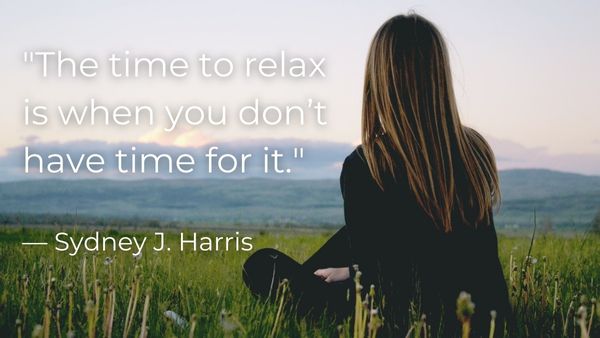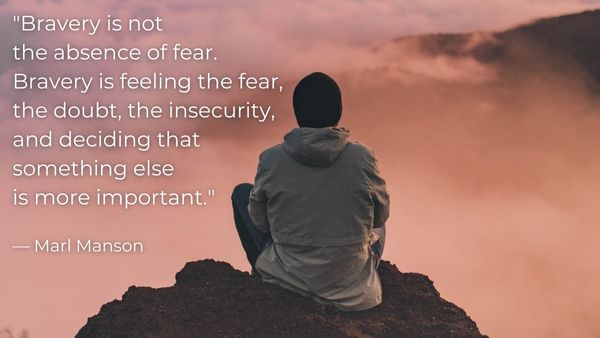Unfortunately, in many areas of the US the need for therapy has started to exceed the availability of therapists with the expertise to help. If you are waiting for therapy, whether you’re in the process of seeking a therapist or if you’re currently on a waitlist, here are 6 things you can do while you wait.
Table of Contents

Take Care of Your Body
The simplest (but sometimes hardest) place to start is by taking care of your body. There is a strong link between mental health and physical health, and by taking care of one you can help improve the other.
Some examples of this might include:
- Eating regular, healthy meals (don’t skip meals whenever possible)
- Getting enough sleep at night (most adults need around 7 hours)
- Doing regular physical activity (this could include walking, yoga, weight lifting, etc.)
- Taking time to relax and do things you enjoy (even if you don’t enjoy them as much as you used to)
- Limiting alcohol and nicotine intake (these can make your mental health worse over time)
Of course, there are many different factors (such as a variable work schedule or a young child at home) that may make some of these difficult or even impossible. Focus not on doing any of these things perfectly, but rather taking whatever small steps you can.
Remind Yourself that You Are Not Alone
No matter what you are dealing with, you are not alone!
Anxiety, depression, trauma, and other similar conditions often try to lie to you and tell you that you are the only one who has experienced ________ or who has felt ________, but this is just not true! According to the National Institute of Mental Health (NIMH), 1 in 5 adults in the US struggle with mental illness.
One resource that may help you feel less alone is listening to podcasts related to whatever you are struggling with. For those with anxiety or OCD I recommend The OCD Stories, Your Anxiety Toolkit, or the FearCast Podcast.
Reach Out to Your Support System
Anxiety, depression, and other mental health problems can be extremely isolating. Another important way to feel less alone is to reach out to your support system.
Try to spend as much time as you can with the people or animals in your life who are supportive or who bring you joy, even if you don’t necessarily feel like it in the moment. Spending time with people who fill your cup can help you be more present in your life and focus on what is truly important to you.
On the flip side of this, it can also be important to limit the amount of contact you have with those who might be less supportive. This might include people who take more energy than they give, people who try to minimize what you’re going through, or people who are downright abusive.
Educate Yourself
As they say, knowledge is power. The more you understand what’s going on with you and what will help or hurt the situation, the better you will be able to take steps towards wellness.
As an anxiety and OCD therapist, there are several go-to books that I often recommend, including “Freedom from OCD” and “Overcoming Unwanted Intrusive Thoughts.”
I also frequently recommend “The Mindful Path to Self-Compassion” and “The Illustrated Happiness Trap” for anyone who is struggling.
Blogs, articles, and videos can also be helpful (and free!) resources that may feel less overwhelming than a book. For example, The OCD and Anxiety YouTube Channel has dozens of short, informative videos.
It can often be difficult to know what resources will and won’t be helpful. My recommendation would be to start with the website of a therapist who you resonate with (or who specializes in what you are struggling with) and see if they have a resources page.
For example, here is a website that lists various books, articles, and videos related to complex trauma. And here is another good list of resources from a therapist who treats couples, anxiety, and trauma.
If you are on a waitlist for treatment, you can also ask if they have any recommended reading or other resources while you wait.
Express Yourself
Journal, free write, draw, doodle, paint, craft, etc. Find ways to let out the thoughts that are bouncing around inside your head or the feelings that are camping out in your body. Journaling can be a powerful outlet, but it’s also not for everyone. Give yourself permission to be creative without any sort of expectation that it has to be “good” or “artistic.”

Be Kind to Yourself
You may be realizing that you need help for the first time, attempting to break a generational pattern, or noticing that you’re falling back into old unhelpful patterns. No matter where you are in this process, remember to be gentle with yourself. You deserve compassion, just like anyone else.
Remember to give yourself credit for any small step that you have already taken in the right direction, including researching therapists or reading this article.
Whatever reason you reached out for therapy, I imagine that you are struggling with something incredibly difficult. Seeking therapy requires incredible strength and vulnerability, as well as a commitment to your mental wellness.
Start with giving yourself credit for being brave enough to take such a huge step.

Waiting for therapy is hard!
I hope that this article has been helpful for anyone who is currently waiting for therapy. And remember that any of these strategies can help you get a jump start on your mental wellness even after you start!
As a reminder, this blog post is not intended as professional counseling or clinical advice. This article is meant to provide you with some helpful steps you can take now while you are waiting for therapy.

-Kristel Roper, LMFT, LPCC
Kristel Roper is a licensed psychotherapist offering therapy services to individuals in the Sacramento area. She specializes in anxiety treatment and especially enjoys working with young adults as they navigate the challenges of college, career, and beyond. Learn more about Kristel Roper’s Therapy Services.
Photo by Jure Širić from Pexels
Photo by Japheth Mast from Pexels
Photo by Ian Stauffer on Unsplash
